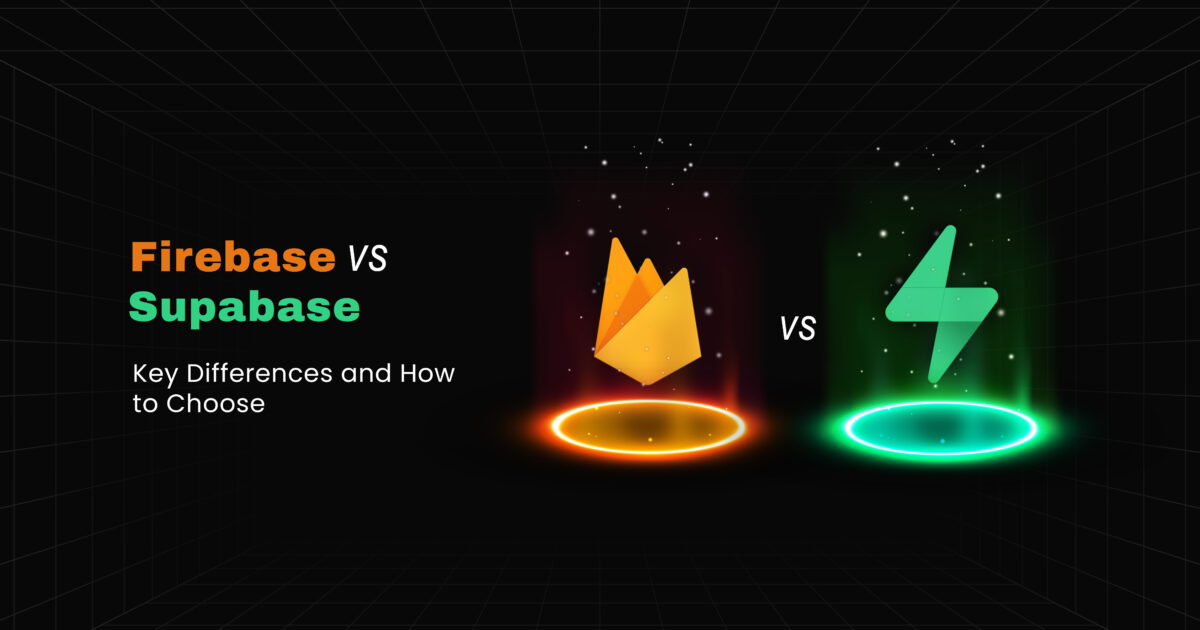When building a web or mobile application today, the proper backend can save you headaches, dollars, and hours. Two of the most popular backend-as-a-service (BaaS) platforms, Firebase and Supabase, both offer strong but different solutions. Both try to make backend development easier, but both have rather different philosophies and technologies.
Firebase is a cutting-edge platform created by Google that is ideally suited for projects with real-time needs. Firebase uses a NoSQL document-store database (Firestore), so it is ideally suited for rapidly changing, mobile-first projects. Firebase supports a massive list of out-of-the-box capabilities like synchronisation of real-time databases, authentication, cloud functions, analytics, and push notifications. Its compatibility with the Google Cloud platform is very close, making it very desirable for teams already invested in Google’s infrastructure. It’s utilised extensively in mobile development because of its performance, scalability, and developer-friendly SDKs.
Meanwhile, there’s a newcomer to the block of open-source options, Supabase, which takes a slightly different approach. It’s a PostgreSQL-powered solution that utilises the relational SQL database heavyweight within a Firebase-like developer experience. Supabase offers a set of features, including automatically generated RESTful and GraphQL APIs, real-time updates through PostgreSQL replication, and authentication and file storage. Supabase is unique because it is open-source and extremely flexible; its developers can run it themselves or take advantage of Supabase’s hosted version, giving them more data and infrastructure control.
Ultimately, it simply comes down to what your project requires. Firebase is perfect for event-driven, real-time apps where the agility of NoSQL and the power of Google can be utilised. It’s also a great fit for teams who wish to build quickly on mobile with analytics and notifications at their fingertips. Supabase seamlessly fits into projects that contain advanced queries, transactional data, or SQL origins. Its open-source and SQL roots make it especially attractive to those developers who desire transparency and relational data structure.
In summary, choose Firebase when you are creating a mobile-focused, real-time app and need rapid deployment with good cloud integration. Choose Supabase if you prefer SQL, open-source management, and an experience like a legacy relational database with a clean set of developer tools. Both are amazing, and your choice ultimately lies with your skillset as a team, your project complexity, and your goals.





